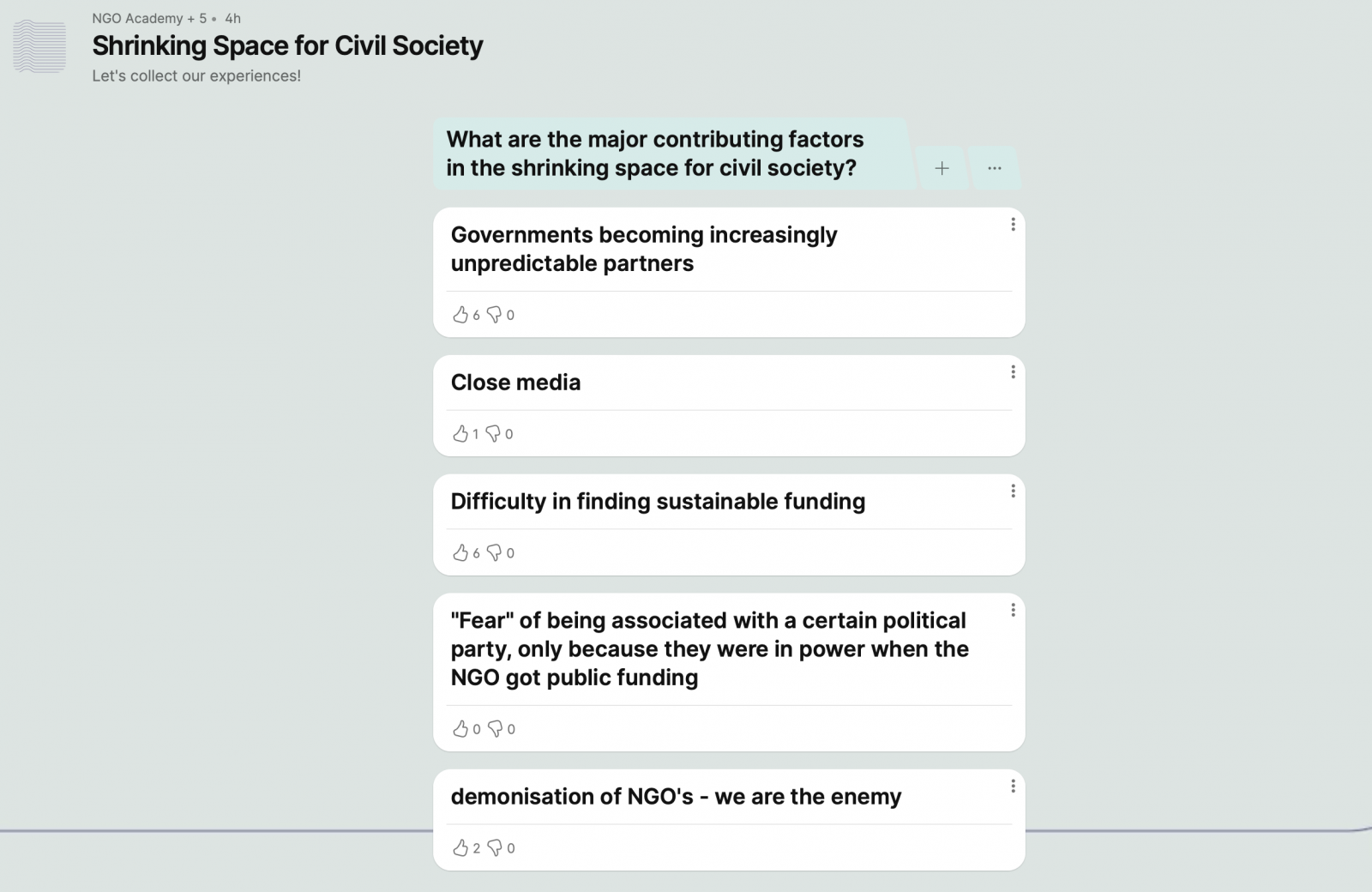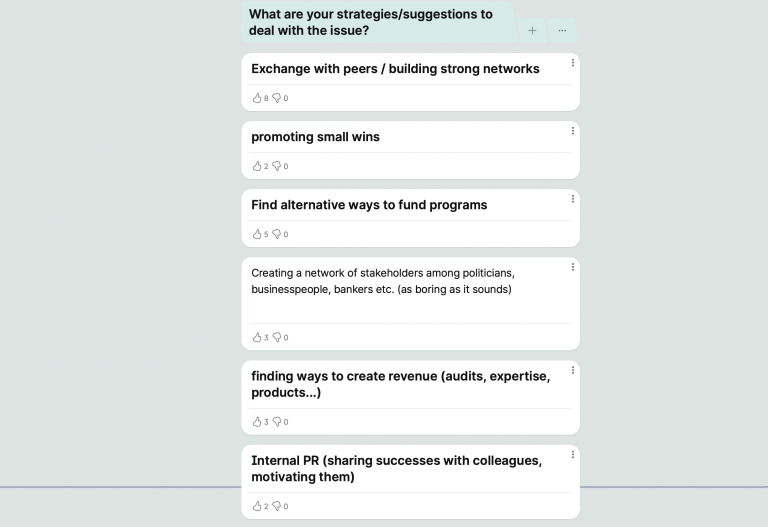In an era where civil society faces unprecedented challenges, the NGO Academy Members Breakfast held online on December 7th brought together 18 participants from various countries to discuss and strategize around the theme of “Navigating the shrinking space for civil society.” The insightful discussion shed light on the evolving landscape with special focus on Hungary, Slovakia, Serbia, and Croatia, where the role of civil society organizations (CSOs) is facing increasing constraints. After the panel discussion, attendees continued the exchange in small groups, creating connections with peers and discussing developments and perceptions in their local contexts.
Challenges Faced by Civil Society:
Hungary
The Hungarian context revealed that the state is becoming an increasingly unpredictable partner. Available public funding for CSOs has decreased tremendously over the last years. Legal proceedings against CSOs under the “Law of transparency” have created additional obstacles. The introduction of this legislation has made the operating environment for CSOs more challenging.
Slovakia
Similar developments were noted in Slovakia, albeit in the early stages. CSOs have been more and more regarded as opponents by public institutions. Participants highlighted instances where decisions from authorities led to a deliberate shrinking of space for civil society initiatives. The distinction between “good” and “bad” organizations further complicates the landscape.
Serbia
Participants from Serbia report that the public authorities aim to increase their control on media outlets, with tendencies towards censorship of critical opinions towards public entities. CSOs are facing pressure and pushbacks in a relatively unstable political environment. Moreover, the political instability of the country, with parliamentary elections taking place in 2020, 2022 and 2023, also proves challenging for civil society organisations.


Padlet created by attendees during the Members Breakfast
